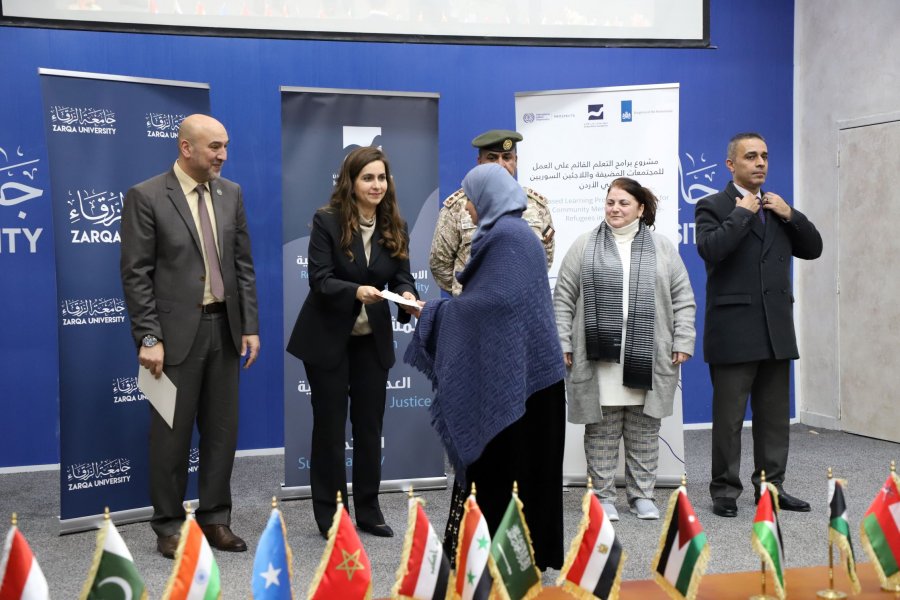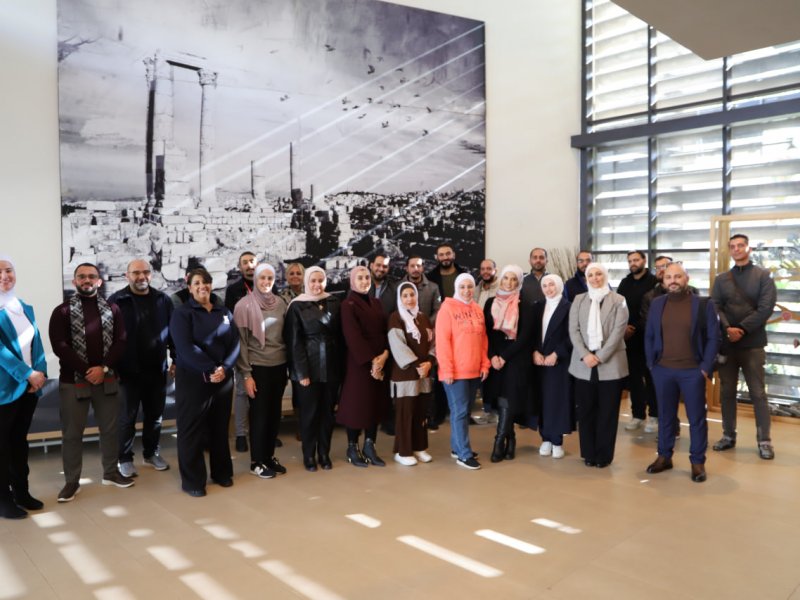JRF, ILO Offer Youth Unprecedented Work-Based Learning Opportunities

The Jordan River Foundation (JRF) and the International Labor Organization (ILO) have completed the training of 359 job-seeking youth in employability skills. Participants underwent work-based learning programs to enhance their readiness for the workforce and obtain occupational licenses.
Under the ILO-funded project, titled "Promoting Work-based Learning (WBL) Programs for Host Communities and Syrian Refugees in Jordan," JRF signed a 29 Work-Based Learning agreement with employers in five targeted governorates: Amman, Zarqa, Balqa, Mafraq, and Irbid. Beneficiaries, 70% of whom are Jordanian host community members and 30% Syrian refugees, successfully completed a diverse set of trainings within professions provided by 29 private sector companies. The Technical and Vocational Skills Development Commission (TVSDC) and the National Employment & Training Company (NET) partnered with JRF for the project's execution.
The training covered various sectors, including Agriculture, Technology, Chemicals and Cosmetics, Leather and Textile Industries, Construction, Logistics, Water and Energy, Tourism and Hospitality, as well as agro-food products.
The primary objective of the project is to facilitate the transition to employment for over 350 young women and men following the completion of work-based training programs. Additionally, the project aims to build the capacity of training providers, and partners, focusing on designing and implementing quality work-based learning programs. The project also assesses potential Public-Private Partnership linkages to help integrate work-based learning into the national agenda.
Ms. Enaam Barrishi, Director General of JRF, expressed the foundation’s gratitude for the continuous collaboration with the ILO in implementing the WBL program for the first time in Jordan. The project falls under the "Job Placement" component within JRF’s Community Empowerment Program, benefiting over 19,600 individuals in the past year.
Barrishi emphasized the importance of innovative practices and solutions to bridge the gap between youth’s technical and vocational skills and job market needs. Additionally, she reiterated the need for a comprehensive participatory model among relevant stakeholders to address unemployment challenges facing youth.
Mr. Mohammed Al-Nawaiseh of The Technical and Vocational Skills Development Commission (TVSDC) emphasized the role of the education and vocational training sector in Jordan's economic and social development. TVSDC aims to formulate plans and policies, collaborating with the public and private sectors to empower a skilled workforce, ensuring quality and increased productivity.
Colonel Khalil Al-Habashneh, representing the National Employment & Training Company (NET), highlighted the company's contribution to national development by preparing youth with the necessary skills to work in various sectors, which in turn helps curb unemployment and poverty.
Ms. Rania Hokayem, representing the International Labor Organization, stressed the need to invest in high-quality education and training programs, providing youth with access to social protection and basic services. She emphasized the importance of helping youth secure and maintain productive jobs, regardless of gender, income, or background.








